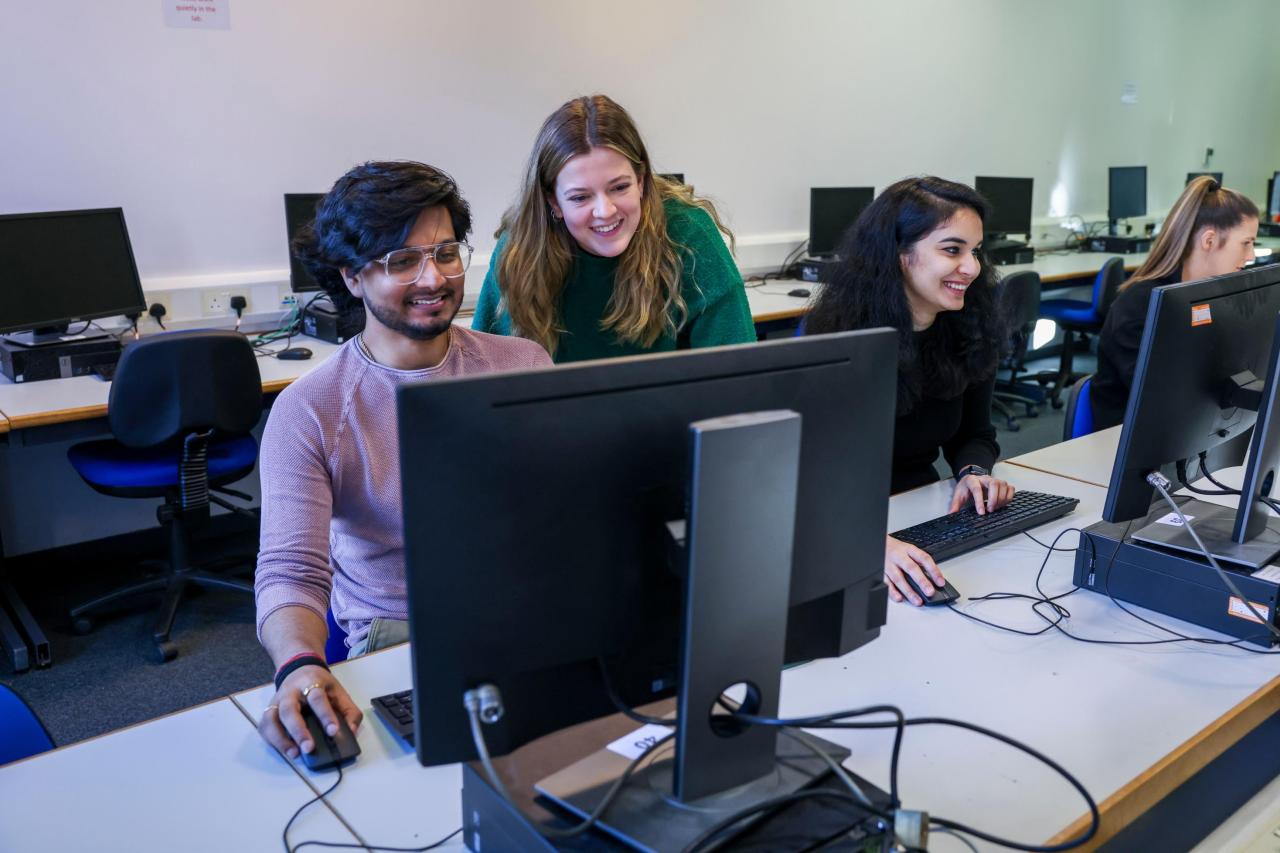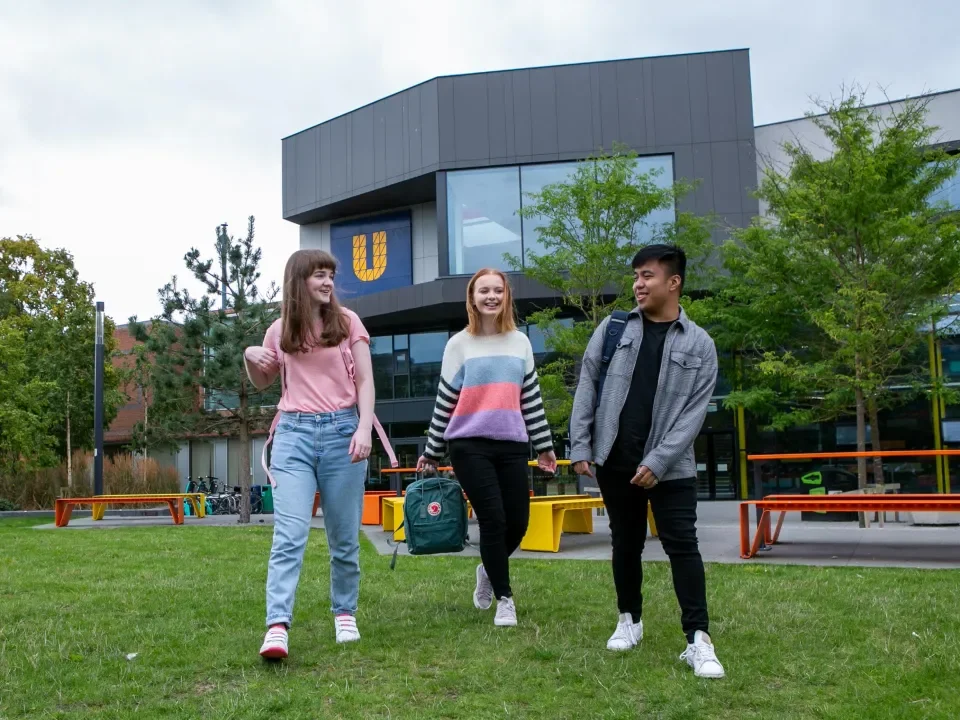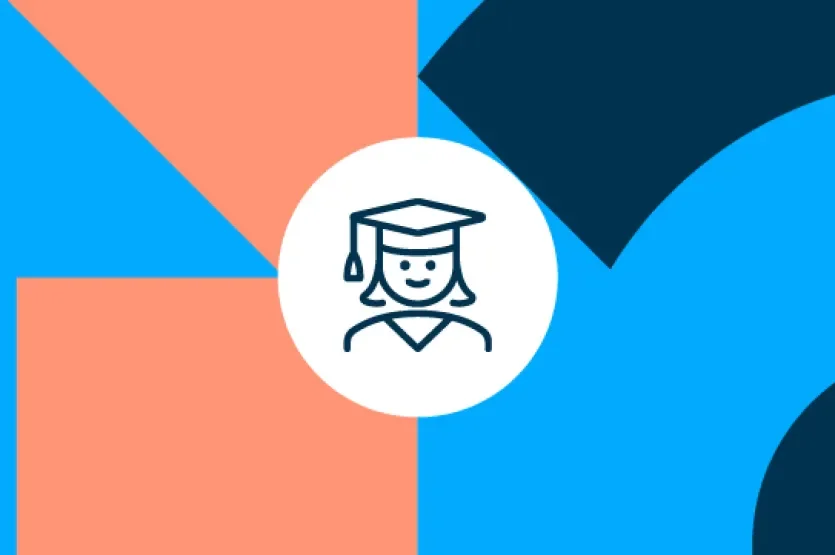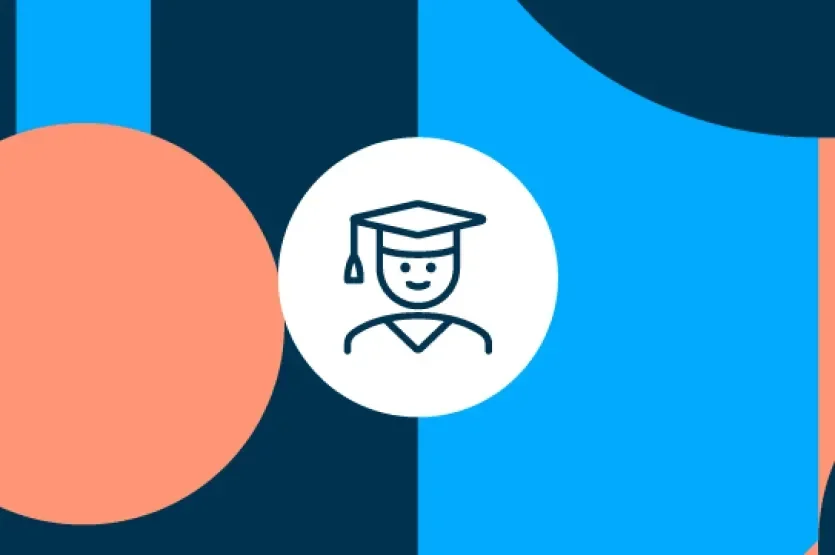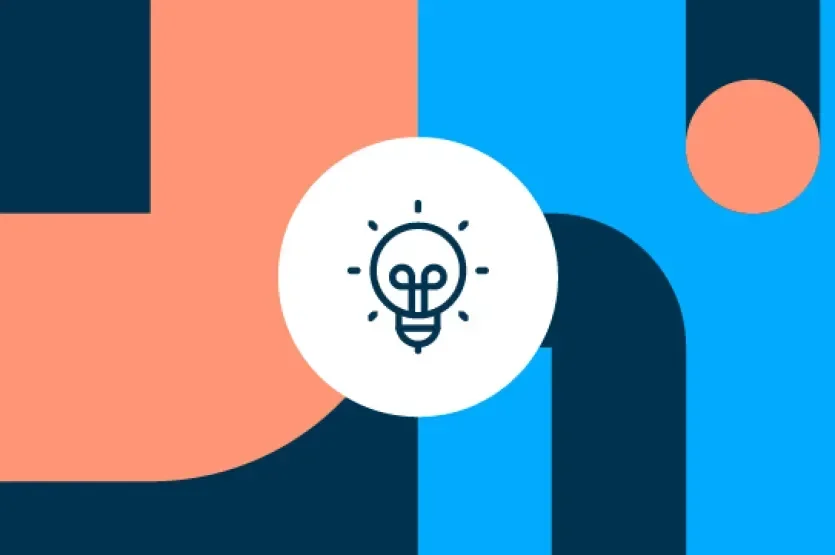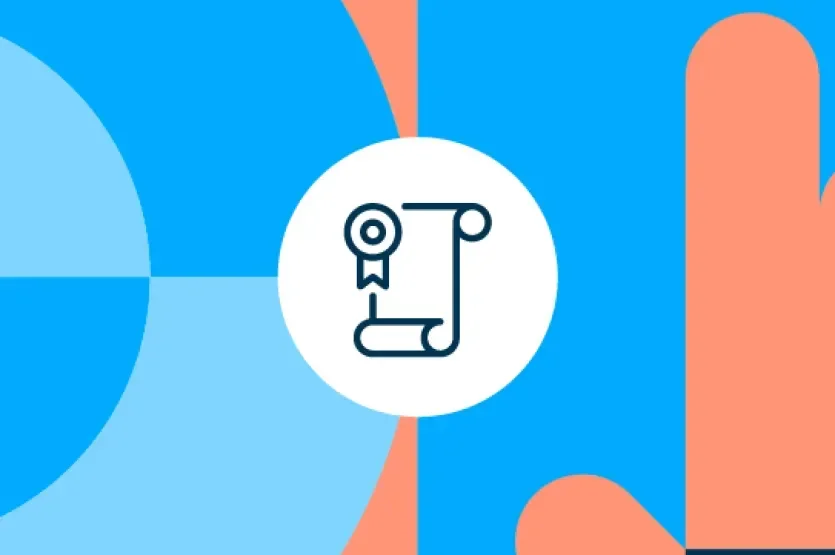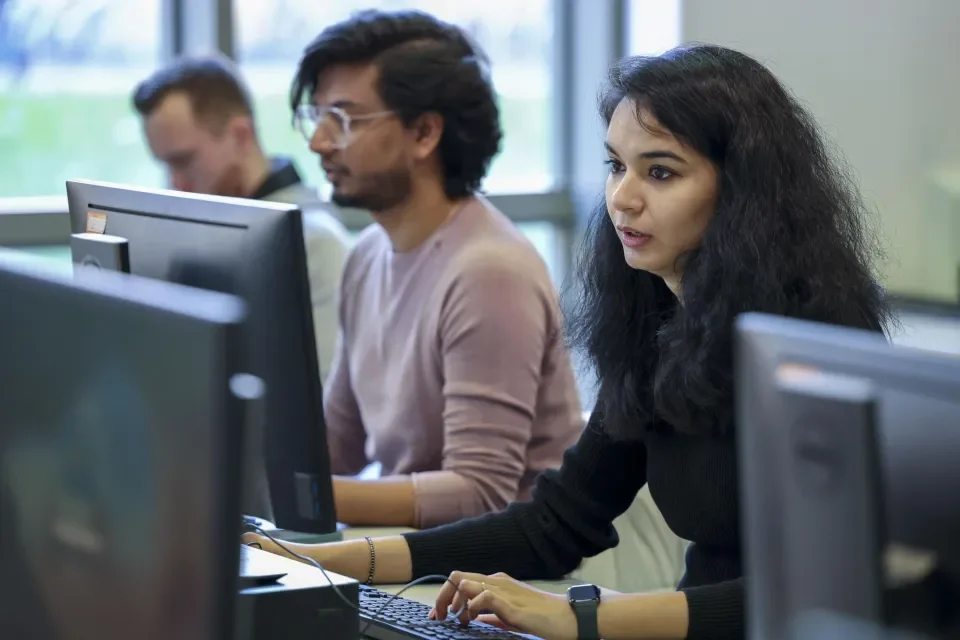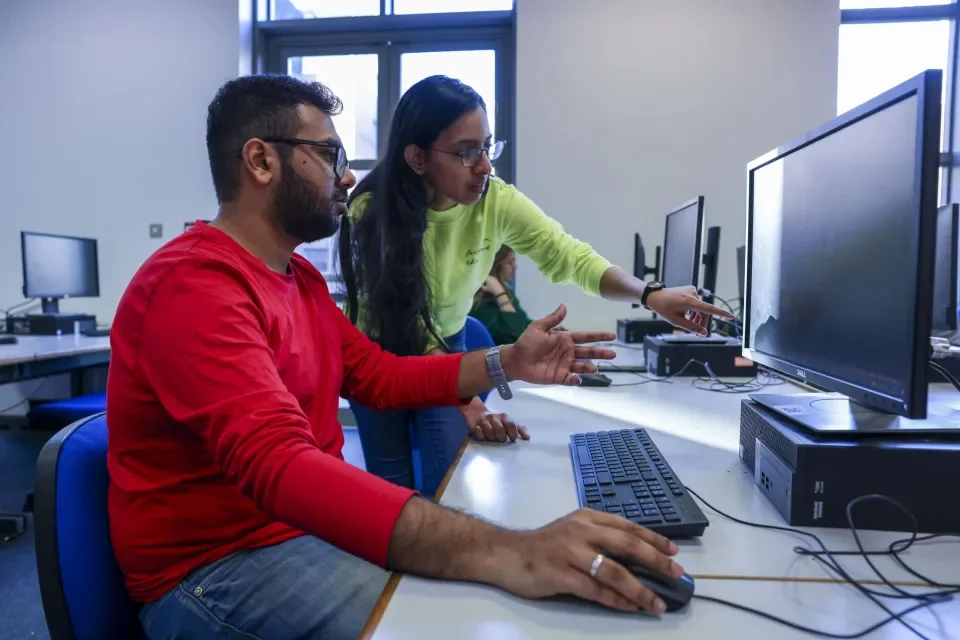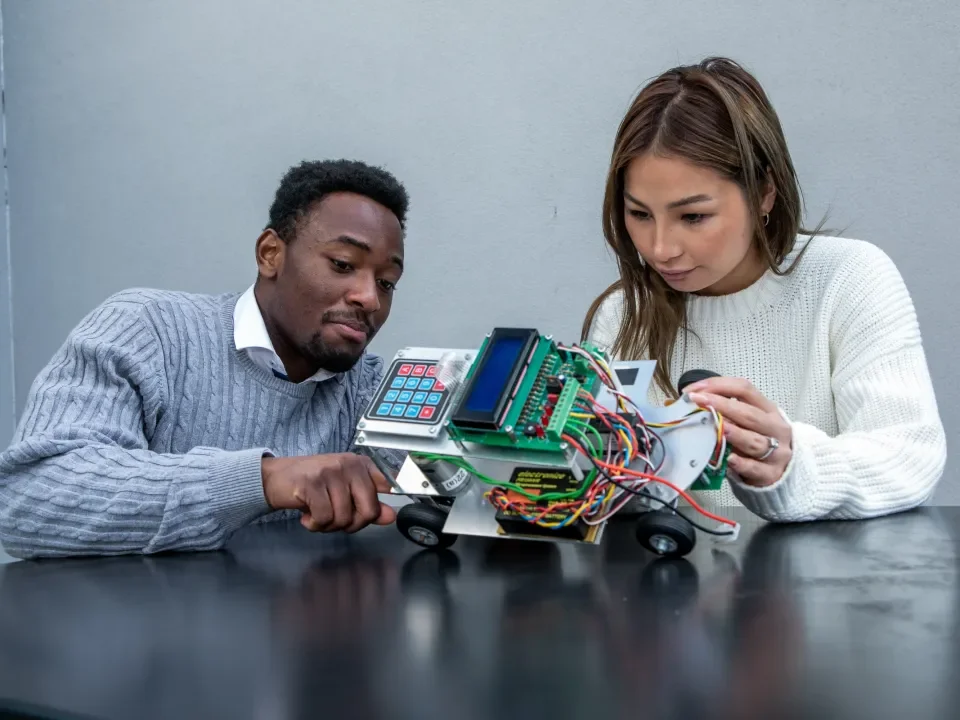Overview
If you want to know how computers work and learn how to develop cutting-edge computer, internet and mobile technology, choose Computer Science. Along with programming, you’ll study advanced data tools and algorithms, databases, networks and cryptography, along with other much needed skills such as critical thinking and communications skills.
Use the latest real world tools
At DCU, our Computer Science course has a strong emphasis on software engineering, which is writing, modifying and maintaining software systems. You’ll get to study DevOps and full stack development in second year and use Git for all your project work – these hands-on, practical approaches based on the latest industrial practices.
In third year, you’ll go on a six-month work placement at a tech company and you have the option to study abroad too. There is huge demand for graduate software engineers and systems analysts, so you’ll find a world of opportunity awaits once you finish this course!
Why DCU
DCU People
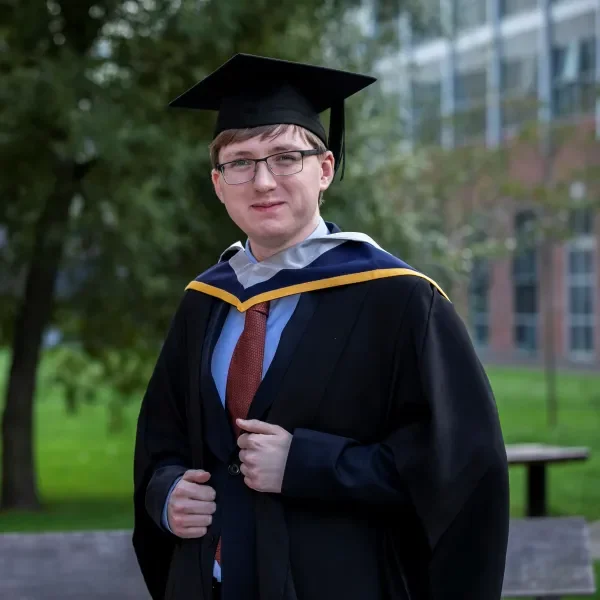
Luke Derwin’s interest in coding started as a child and is linked to DCU.
Read more about Luke Derwin
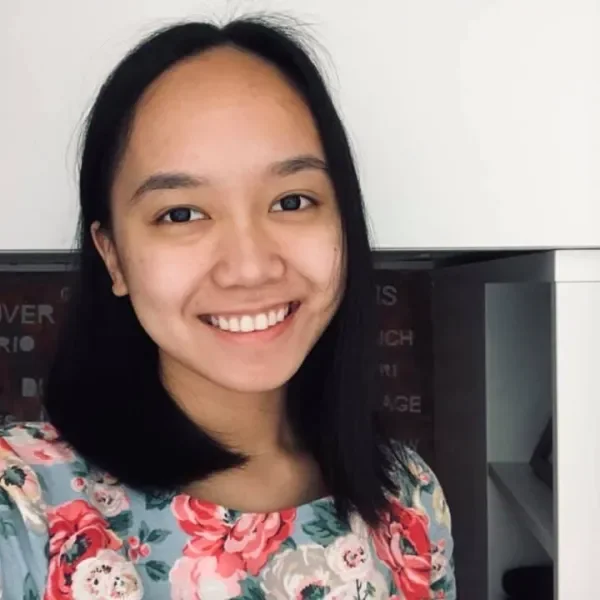
I’ve always been interested in the wonders of science and technology.
Read more about Joanna Talvo
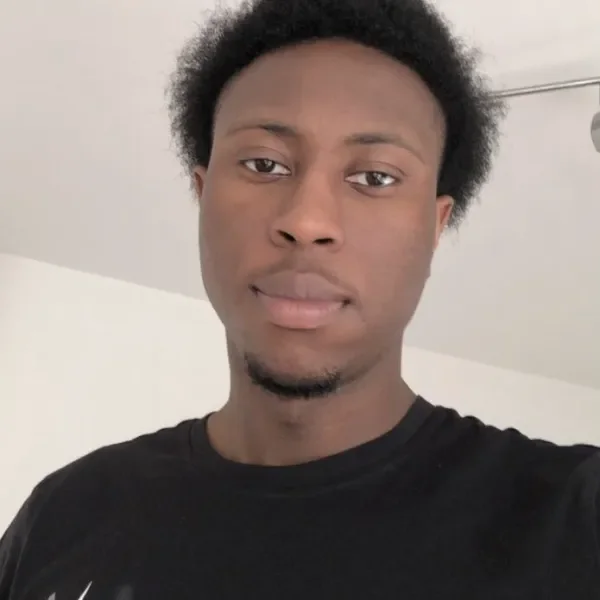
When I was choosing between universities, computer science at DCU stood out to me due to its focus on practical learning and six-month INTRA work placement.
Read more about Benjamin Olojo
Careers & Further Options
Careers
Some Computer Applications (Computer Science) graduates choose to start their own businesses, others begin careers as:
- Computing and Electronic Companies
- Finance Companies
- Self Employment
DCU graduates are highly sought after by employers. Our Graduates work in environments ranging from large multinationals to SMEs, family businesses and start-ups across every sector.
DCU Careers Service has a number of learning and development initiatives in place for our students, giving them the skills they need for a successful career path.
Entry Requirements
In addition to the general entry requirements for admission to the university the following entry requirements apply
Minimum of O4 or H6 in Mathematics
In addition to the general entry requirements for admission to the university the following entry requirements apply
GCE A Level D or GCE AS Level C or GCSE C Mathematics
Please visit our Admissions webpage for details on course requirements or how to apply to DCU.
Please visit our QQI FET webpage for details on DCU courses, open days, campus tours or school visits.
To apply to DCU, please visit www.cao.ie.
Mature entry is a competitive process and applicants must demonstrate:
o a genuine interest in the subject area/programme(s) they are applying for
o academic experience and/or evidence of competency in their chosen field of study
o an ability to engage and succeed in the subject area/programme
All applicants must complete a statement of interest to be considered for the mature application route.
For further guidance on the mature application process please see the CAO Website
Additional Requirements
Please refer to the Leaving Cert Entry Requirements for guidance on level of competency required.
Applicants that have completed at least one year of study at NFQ Level 8 at another institution may apply to continue their studies on a similar programme at DCU. There should be substantial overlap in content between the two programmes to be considered for a transfer. Results and other supporting documentation must be submitted to CAO by the closing date of 1st July. This is a competitive application process for a small quota of advanced entry places. Offers are made on a rolling basis until all places are filled. Early application is advised. Please note: Applicants should also consider applying through the appropriate route for first year entry to the programme they are interested in. This application process is only for advanced entry.
Additional Criteria
Priority will be given to those who meet the requirements and are studying at a more advanced level.
Applicants must have an average module grade of at least 70% in their current programme of study (NFQ 8), with no single module grade below 65%.
Advanced entry applications are for year 2 only.
In your application applicants must present:
1) A case as to why all DC121 Year 1 Programme elements are considered to be covered in your view by providing a mapping to DC121 modules and indicating corresponding modules that you believe satisfy each DC121 module
2) Results for mapped modules
3) A description of each module
International candidates are expected to have educational qualifications of a standard equivalent to those outlined above. In addition, where such candidates are non-native speakers of the English language they must satisfy the university of their competency in the English language. Click here for further information on international applications.
Course Structure
- Computer Systems
- Problem-solving & Critical Thinking
- Web Design
- Computing Programming
- Mathematics
- Digital Innovation
- Networks & Internet
- Operating Systems
- Systems Analysis
- Introduction to Databases
- Probability & Statistics
- Computer Programming
- Operating Systems
- Logic
- Software Testing
- Full Stack Development
- Linear Algebra
- Computer Networks
- Object Oriented Analysis and Design
- Advanced Algorithms
- Artifical Intelligence
- Computability and Complexity
- Comparative Programming Languages
- User Interface Design and Implementation
- Communication Skills
- IT Architecture
- Year 3 Project
- INTRA (6 month paid work placement)
- Uaneen Non-Contributing Module
- Compiler Construction
- Search Technologies
- Data Mining
- Cryptography
- Software Engineering
- Optional Subjects:
- Concurrent Programming
- Computer Graphics
- Statistical Machine Translation
Fees and Funding
Fees
How To Apply
Apply through the Central Applications Office (CAO) by 1st February or 1st May
To apply for this programme:
Candidates should apply directly here. Here's a quick step by step guide if you need help with your application.
Please provide
- Academic Transcripts for each and every year of study with English translation, if applicable.
- If applicable, provide evidence of competence in the English language as per DCU entry requirements. Please see link http://www.dcu.ie/registry/english.shtml
Applications are accepted on an ongoing basis up to 1st July. All Non-EU candidates are advised to apply early, as places are limited.
All mature applicants apply through the CAO by 1st February. For further information and for special application procedures for mature students, please click here
Applications are made via the CAO Advanced Entry route which will open on the 5th November to 1st July.
Please see Application Procedures or E-mail ugadmissions@dcu.ie.
Candidates required to apply through the CAO can apply online at www.cao.ie
Life On Campus
At DCU, our students can expect a unique campus experience. We are known for our excellent teaching and learning facilities, our active clubs and societies, and our great social and sporting facilities. All this makes DCU an exciting place to be.
DCU has three academic campuses; Glasnevin, St. Patrick’s and All Hallows (both in Drumcondra), all close to Dublin City centre.
They can be reached by public transport, Dublin Bus and Bus Éireann, with our Drumcondra campuses a ten minute walk from Drumcondra Train Station. Glasnevin is a 20 minute walk from St Patrick’s and All Hallows. They are also linked by Dublin Bus.
Each campus has a library (O’Reilly, Cregan and Woodlock Hall), study spaces, restaurants, and on-campus residencies. There are sports facilities on Glasnevin and St. Patrick’s, and there is a dedicated sports campus, St Claire’s, located near Glasnevin on the Ballymun Road.
DCU’s 19,000 students have access to exceptional teaching and learning facilities across our three academic campuses.
These include modern learning theatres, research centres, a new media and TV studio, radio/podcast studios, computer suites and advanced labs in the areas of Languages, Engineering, Physics, Chemistry and Biotechnology, as well as a Sports Performance centre and a training hospital ward. In 2021, we opened our first virtual reality ‘Leadership Lab’, which is located in our Business School.
We continue to improve and update our facilities. For example, construction of a new world-class STEM facility is underway on the Glasnevin campus. With capacity for an extra 3,000 STEM students, this facility will advance DCU’s international reputation for excellence in science and health, computing and engineering disciplines.
Studying in DCU isn’t just about course work. The university is rich in student life and activities.
There are more than 140 clubs and societies for students in DCU, with ‘Clubs & Socs’ days taking place on both the Glasnevin and Drumcondra campuses at the start of the academic year. They span everything from rugby to rock climbing, anime to jazz.
For many students, sport is an important part of the DCU experience. DCU’s Sports Complex boasts a 25 metre swimming pool, fitness centre gym, all-weather pitches and squash courts, as well as soccer, GAA and rugby pitches. DCU Dóchas Éireann, the university’s GAA club, is the largest third level Gaelic Games club in the country. Meanwhile, DCU Athletics has been Ireland’s highest achieving university club for many years. And DCU has dozens of other clubs to get involved in, from Archery to Weightlifting.
The Glasnevin campus is home to our purpose built, state-of-the-art student centre, The U, which serves the needs of a rapidly growing student body. Here, you will find the Student Leadership and Lifeskills Centre, performing arts and cultural spaces for students and the wider community, and the Entrepreneurship and Innovation Hub. Also located on our Glasnevin campus is The Helix, our renowned performing arts centre.
On our St Patrick’s campus, we have the Java Student Hub, a vibrant, warm and welcoming space where students can meet for coffee, play music, use the projector to watch events, or just relax. The walls of the Java Hub were designed based on the cultural history of St Patrick’s Campus, including the special references to the notable sporting history and history of the arts.
We have a number of academic, professional and social supports for students.
Student Advice & Learning Skills Centre - Offers a wide range of supports and services to students and advice
The Writing Centre - drop-in writing workshops for students through the academic year
Maths Learning Centre - provides maths support for students of all ability levels with maths modules
Student Learning - facilitate the transition from passive to active learning for students at DCU, by teaching study skills, nurturing critical thinking and building student confidence.
Careers work with students to help them on their professional journey into graduate employment.
Our student support team offers a comprehensive support programme, helping students make that all important transition into university life and focusing on building confidence and skills which are key to success at third level.

DCU Glasnevin Campus
FAQs
What is the difference between Computer Science and Computing for Business?
Computer Science focuses directly on programming and software engineering. By studying this course you will qualify as a strong programmer and software engineer. This course will give you in-depth knowledge of software engineering and the practical skills to apply this knowledge to develop the technology behind computer games, mobile phones, the Internet, web applications etc. With this degree you can travel the World and work in any country as programming languages are the same Worldwide.
Computing for Business focuses more on the management of technology. For example, perhaps you see yourself in a career in IT Management, Technology Management, or Project Management for a Tech/IT company. This course focuses on the business and management aspects of the computing industry. While this course does have programming modules, it is not the same level of programming as Computer Science.
Is Computers Science (DC121) very design focused?
Computer Science is more programming and software engineering focused rather than design focused. You do not require any past experience in CAD or programming, as all first year modules are taught at an introductory level. If you are someone who wants to have a career in game development, programming is a crucial requirement to have and Computer Science focuses heavily on programming.
Do I need to know how to programme before entering this course?
Students do not require any past programming experience, as all first-year modules are taught at an introductory level. During our courses, you’ll learn coding and programming, and get to grips with databases, operating systems and networks. HTML, CSS, CSS3, Python and Javascript are examples of programming languages taught throughout the course.
I am interested in studying in Computer Science and was wondering if the course has a work placement module?
All of the courses in the School of Computing (Computer Science, Computing for Business and Data Science) have a paid work placement. Our students go on work placements for a minimum of 6 months in third year.
The School of Computing students liaise with the DCU INTRA office to organise a suitable placement that is relevant to their programme of study. In the past, many students have been hired by their work placement companies post-graduation. It is a wonderful learning experience and gives students the opportunity to put their learning into practice.
Is DCU all one campus?
DCU is a multi campus university - the Glasnevin, St Patrick's and All Hallows campuses. The St Patrick's campus is where the Education courses are taught and some of the subjects from the BA Joint Honours degree. There is a 20-25 minute walk between the campuses but there are buses and bikes available to go between them also.
Click here to see maps of all of our campuses
If I'm studying on the St Patrick's campus, can I use the library and sports centre on the Glasnevin campus?
Yes, all facilities such as sports and accommodation are open for all DCU students to avail of.
Are there libraries in DCU and if they have wifi and work stations?
We have a brand new state of the art four floor library on our St. Patrick's Campus which complements the existing library on the Glasnevin campus. There is free wifi, work stations as well as desktop computers.
Does DCU provide accommodation?
DCU does have on-campus accommodation for undergraduate and postgraduate students, and you can find out more and apply via the Accommodation Office webpage.

